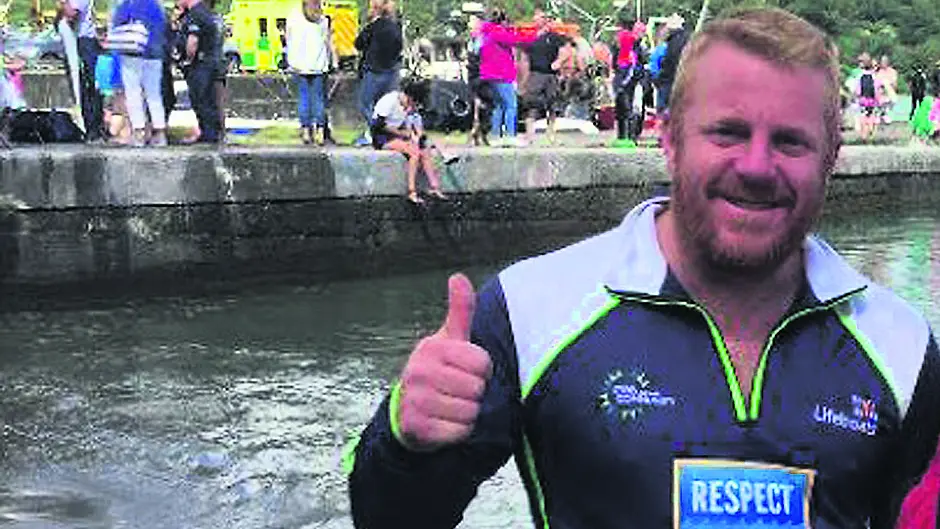THE RNLI has issued a reminder to swimmers and cold-water dippers of the risks involved, especially in the lead up to the coldest month in March.
Last winter, Kevin Rahill, the RNLI’s water safety lead, said it saved the lives of five swimmers and helped a further 12 back to safety.
‘Cold water shock is a very real danger for anyone entering water that is 15°C or below,’ he said.
‘Hypothermia can also pose a risk, especially at this time of year when the average sea temperature around Ireland is just six to 10°C.
‘We’ve seen a big increase in the number of people taking up dipping and open water swimming,’ he added, ‘and it’s amazing that so many people are feeling the benefits of a new activity.
‘However, for many, this is their first experience of the sea in the colder winter months, so we’re asking everyone to be aware of risks before they enter the water, know how to keep themselves and others safe, and to respect the water.’
Noel Browne, one of Skibbereen’s best-known cold-water swimmers, agreed with the safety advice and said it is helpful too to know the area in which you are swimming.
Noel agreed that the water temperature is ‘pretty cold at this time of year’ but some of the diehards would claim it is lukewarm. ‘They seem to be quite comfortable in it,’ he added.
However, with the sea temperatures still dropping and reaching their coldest around March, the effects of cold water, combined with weather conditions and any personal health issues should be taken seriously before venturing in.
‘If it’s your first time in open water,’ the RNLI’s safety spokesman said, ‘we’d recommend you speak to your GP first, particularly for those with cardiac or underlying health conditions.
‘There are a number of precautions you can take to help ensure you have an enjoyable and safe time. Avoid swimming alone, consider going with others, or joining a group, so you can look out for each other. Think about the depth of water and if you can, stay in your depth.
‘Taking the right kit is essential. We’d recommend wearing a wetsuit to keep you warm and increase your buoyancy, together with a bright swim cap and tow float to make yourself visible to others and use in an emergency.
‘The most important thing to remember,’ he added, ‘is if you are in any doubt, stay out of the water and if you or anyone else does get into trouble in or on the water please call 999 or 112 and ask for the Coast Guard.’
Even the well prepared can find themselves in difficulty said Mr Rahill but having the correct knowledge and equipment can save lives.
Taking a mobile phone in a waterproof pouch, and a whistle, could also be a lifesaver, he added.








